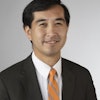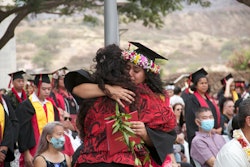Mention “best-seller” and author Amy Chua in the same breath and, chances are, a person’s thoughts turn immediately to her controversial parenting memoir, Battle Hymn of the Tiger Mother. Indeed, national backlash has shadowed Chua for months since publication of the book, which describes her rigid parenting style in what she loosely calls “the Chinese” way.
But long before Tiger Mother infuriated tens of thousands of Americans, and long before Chua’s parenting tactics were blasted by bloggers and analyzed by Oprah, she already was writing books in which race and ethnicity took center stage. Like Tiger Mother, Chua’s previous scholarly books explore themes that question the effectiveness of so-called Western ways.
“It’s important in this era of specialization that we have writers and thinkers willing to take on broad topics to start a dialogue or continue one,” says Dr. Glenn Altschuler, the Thomas and Dorothy Litwin Professor of American Studies at Cornell University.
Adds Dr. Andrew Bacevich, a Boston University professor of history and international relations: “Books like Chua’s are useful because they invite readers to contemplate.”
In World on Fire: How Exporting Free Market Democracy Breeds Ethnic Hatred and Global Instability, Chua, the John M. Duff Jr. Professor of Law at Yale University, contends that capitalism and representative democracy—keystones of American society—have not necessarily lifted parts of Latin America, Asia and Africa out of poverty and oppression.
Published in 2002, the book cites numerous examples of nations plagued by racial strife, violence and political uncertainty, including Bolivia, Indonesia, Russia, Sierra Leone and Zimbabwe.
Chua again examined racial diversity in 2007 with the publication of Day of Empire: How Hyperpowers Rise to Global Dominance — and Why They Fall. The book chronicles those civilizations that have attained world dominance because of their military and economic muscle: the Persian Empire, the Roman Empire, China’s Tang Dynasty, the British Empire and the United States. These and other hyperpowers owed their success and status in part to acceptance of racial and religious minorities who had been excluded by other societies but whose skills and labor benefited their adopted homelands.
University of Maryland Baltimore County historian Dr. Warren Cohen found Day of Empire persuasive. “An empire that tolerates diversity in all its forms will provoke less resistance than a less tolerant one,” he says.
Other scholars were not as convinced. Altschuler pointed out in a Baltimore Sun book review that the Romans, for instance, notoriously enslaved many of the people they conquered or sent them to the gladiator games.
“But if Chua’s work stimulates scholars to examine more closely the attainment and maintenance of power, that’s a useful thing,” Altschuler said.
Chua’s book also points out this irony among nearly all the behemoths: Tolerance of multiculturalism eventually became xenophobia. She wonders whether elements of the current U.S. climate—public criticism of outsourcing to foreign countries and backlash against illegal immigration, for instance—could trigger this country’s fall as a hyperpower.
“That’s a problem the United States confronts today,” Bacevich says. “We are emerging from a historical moment in which American policymakers indulged in the delusion that (we) as the ‘sole superpower’ could more or less run the world. The effects of that delusion were uniformly pernicious.”
Four Questions About Tiger Mother
DI: Some have accused you of perpetuating the “model minority” stereotype of Asian Americans as one-dimensional academic nerds. Do you agree?
AC: This is a major frustration because I see my book as the opposite of entrenching the idea that Asians are obedient, meek, robotic and non-creative. Look at what happens in the book—I fight with my girls! They’re the heroines of the story and talk back at me constantly. They have the best lines. The stereotype of Asians is that we have no sense of humor. But my book is a self-parody humanizing the Asian mother.
DI: Soon after the release of Tiger Mother, your oldest daughter, Sophia, published a letter in the New York Post defending you. What did you think of her letter?
AC: Sophia was invited by the Post to write a letter that I opposed. But she insisted, so there’s another act of defiance. The words are Sophia’s, and I’m proud of her. And both girls have been incredibly strong and supportive about the book.
DI: Do you feel you’ve had to discuss, or even defend, a book you didn’t write?
AC: All the time. I’ve been asked to participate in panel discussions with child psychologists and other experts, but I’ve never billed myself as a parenting expert. I declined those invitations. The book is about my coming-of-age as a parent. It’s not a how-to guide.
DI: If your critics thought no one would take your ideas in Tiger Mother seriously, they probably wouldn’t have objected so passionately. Do you believe there’s a societal fear that your parenting tactics might have merit?
AC: I think there was this latent anxiety already in America, and perhaps the book was an accidental catalyst stirring it. People want to do better as parents and have said they want to be firmer with their kids. Perhaps now, they’re inspired to do so. I’ve heard this from diverse groups, whether it’s Haitians, Nigerians or Vietnamese.





















